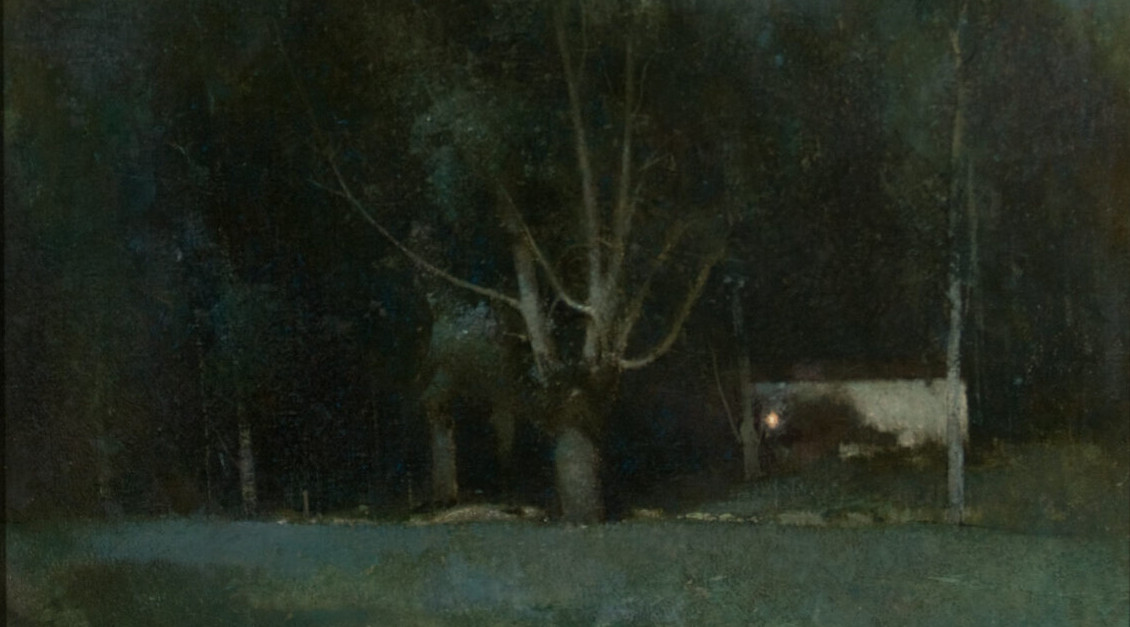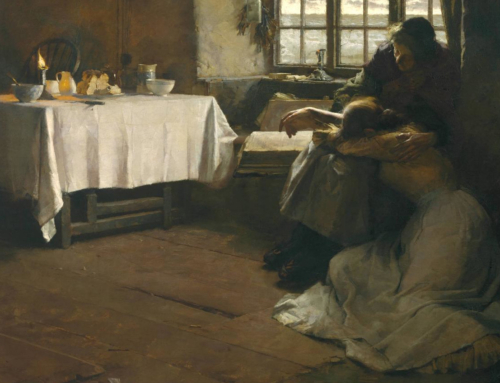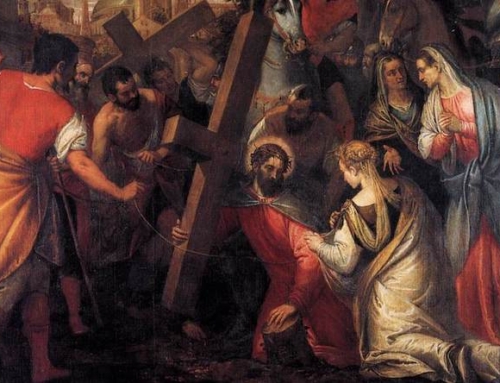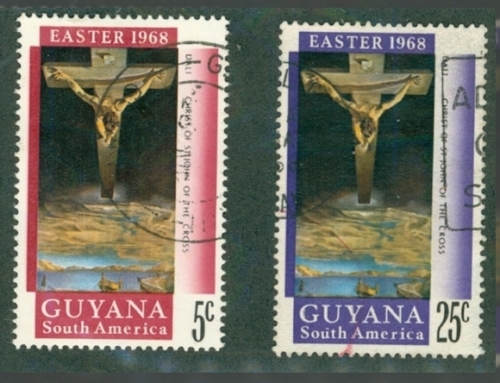This is part of a series entitled, “The Reason for Our Hope.” Read the series introduction here. To see other posts in the series, click here.
The dirt was caked on my hands, under the fingernails, stinging the blisters. In the evening dark, the black of the earth and the red of my own blood were indistinguishable. Taking a few deep breaths, I wiped my forehead, the dirt and the sweat of my brow mixing into a kind of mud. But not like when he spit on the clay—or so I heard. Still, I could not see the color of my hands, or any color. Color. I remembered the golden sunset’s beam on his face as we took a walk through this field, this very field, after dinner, many years ago—before I was sick. Only the glow from the house is light now. It is night. It is dark.
Even the darkness is not dark to you; the night is as bright as the day, for darkness is as light to you. Another day, another eve, and the work of the field is taken away. How cruel night is, the darkness, driving man from the field. Driving him from his daily wage. From his worth. Driving me from the land I’ve always kept, on these three small acres outside the city, downhill from our home. To keep me from what I earn. I don’t feel the rest that comes with night. I’ve felt it less and less in recent years. Why was it so? The illness took more than my strength. It took my hope.
I sought him, but found him not; I called him, but he gave no answer. He knew I loved him. When he’d come round, our table was perfect joy. To part ways at dusk was sad, but knowing he’d be back soon satisfied me. He sought after others whom he desired more, I supposed. Still, he showed his love to me sometimes, less so in recent years. The servants were always needing instruction, and the men in the village came for counsel. So he left me to the plow, to the hammer, to whatever I did to fill my hours as I waited. When our friends would come for dinner, they asked where he was, wanting his advice as well. But I could hardly remember his voice, so busy was he of late, and never coming over anymore. Even when I fell sick, he was nowhere to be found. Was I hiding it from him? There were other sick ones, too, I supposed. Was not I sick, too?
I had sisters. He loved them more than me, I thought. I shook it from my mind. Why think like that? “I loved him more than he did me,” I thought. Never did I think myself the Jonathan to David—one who was cherished, one whose loss was worthy of mourning. I will never be given a future of hope, because he has gone away. I withered.
I’ve been asleep at this plow for four days. I reek of earth. The house sits just a little ways away on the hill’s crest, and the doorway’s singular light I see from where I stand. So far off. So small. I look around, but the night is thick and everything is black. The monotonous drone of the cicada and the screech of the bat fill my ears. When I was younger, fear came with the darkness. Always I wanted the noonday sun, and in the evening, the warm glow of the fire in that little house. Now I see it, the same windows, the same door, the same fire. Perhaps I will go and enter there, and sit with him to ask for a sign of his love. But perhaps I will not go—how could I give my heart, if he is not there?
But a noise echoes. It comes from the light, from the house, drowning out the sounds of darkness. Trumpets and the sound of the horn? Or is it the sound of those waters stirred up? I’ve left the plow, left my work belt, my hammer, my tools of meager existence—left my unmoving toil. And I took a step.
Closer to the house. I’m drawn. A distance of no consequence. Mere yards. But farther than any man has crossed. Drawn by a presence . . . of whom? The light from that one small opening, that door, I saw as if it were piercing through my eyelids, and this blindfold burned away. Like trees walking about as men, or so I’ve been told. Was this the hearth and home I knew before? Sweet memories poured in of laughter and when we once reclined at table deep into the night.
I reached the porch, and then I realized: what was inside was not inside at all, but the light of radiant day—not fire’s imitation glow. The black night sky above was rock. Inside was out, and outside in. This field, this dust, this dirt, was death caked in and blood run dry. Could I see the color now? Shapes of light, like men as springtime trees, fluttered in my sight.
Still I could not see clearly—
Then, I heard his words, a shout,
that deep and trembling voice
shot through with love for me.
“LAZARUS, COME OUT!”
✠
Image: Emil Carlsen, Night, Old Windham







